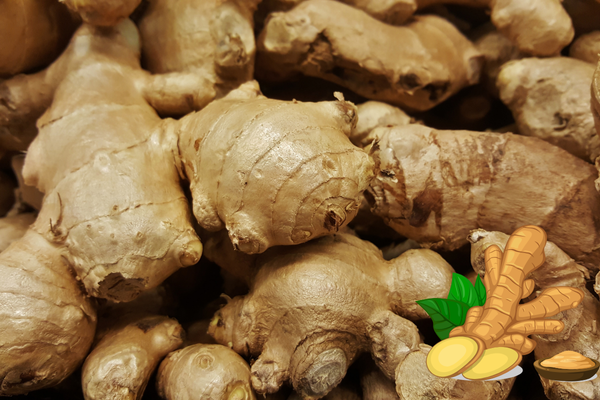Ginger: A Spicy Root with Numerous Health Benefits – By Nadeeka – eLanka

Ginger, scientifically known as Zingiber officinale, is a flowering plant whose rhizome, ginger root, is widely used as a spice and a folk medicine. It has a long history of cultivation, having originated in Southeast Asia and is now grown in various parts of the world. This aromatic root is not only a culinary delight but also boasts a multitude of health benefits.
Historical Background
Ginger has been used for thousands of years for both culinary and medicinal purposes. Ancient writings from China, India, and the Middle East describe ginger as a prized spice. It was one of the first spices exported from Asia to Europe, where it became an integral part of the spice trade.
Nutritional Profile
Ginger is a rich source of essential nutrients and bioactive compounds. It contains high levels of vitamins such as vitamin C and B6, along with minerals like potassium, magnesium, and manganese. The root is also packed with antioxidants, particularly gingerols and shogaols, which are responsible for many of its health-promoting properties.
Health Benefits
1. Anti-Inflammatory and Antioxidant Effects
Ginger’s anti-inflammatory and antioxidant effects are well-documented. The bioactive compounds in ginger can help reduce oxidative stress and inflammation, which are linked to various chronic diseases, including heart disease and cancer.
2. Digestive Health
Ginger is commonly used to aid digestion and treat nausea. It is effective against nausea caused by motion sickness, chemotherapy, and pregnancy. Its carminative properties help in expelling gas and relieving bloating.
3. Pain Relief
Ginger has been found to be effective in reducing muscle pain and soreness, particularly after exercise. Its anti-inflammatory properties also make it beneficial for those suffering from arthritis.
4. Cardiovascular Health
Studies suggest that ginger can have a positive impact on heart health by lowering blood pressure, reducing cholesterol levels, and preventing blood clotting. These effects help in reducing the risk of cardiovascular diseases.
5. Antimicrobial Properties
Ginger has natural antimicrobial properties that can help fight infections. It has been shown to be effective against oral bacteria linked to gingivitis and periodontitis, as well as respiratory infections.
Culinary Uses
Ginger’s unique flavor makes it a versatile ingredient in many cuisines around the world. It can be used fresh, dried, powdered, or as an oil or juice. Fresh ginger is commonly used in Asian dishes, from stir-fries to soups. Ground ginger is a staple in baking, especially in gingerbread and spice cookies. Ginger tea is another popular way to enjoy this spice, often used as a home remedy for colds and sore throats.
Conclusion
Ginger is more than just a spice; it is a powerhouse of health benefits. Its anti-inflammatory, antioxidant, and antimicrobial properties make it a valuable addition to your diet. Whether used in cooking or as a natural remedy, ginger continues to be celebrated for its wide range of therapeutic benefits. So next time you enjoy a ginger-infused dish or a cup of ginger tea, remember that you’re also doing a favor to your health.







